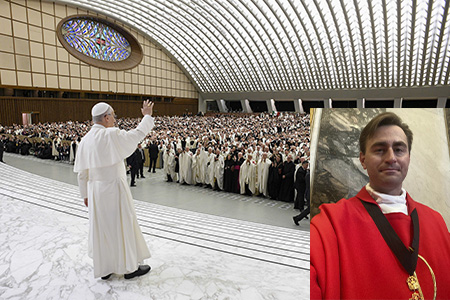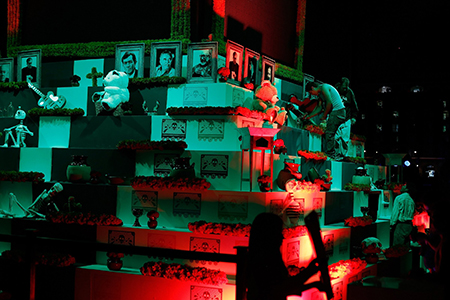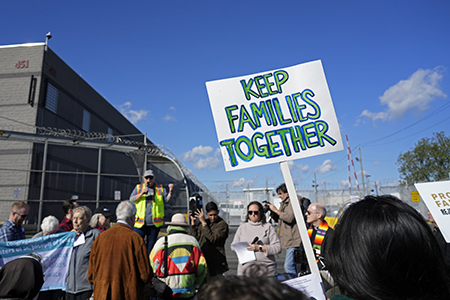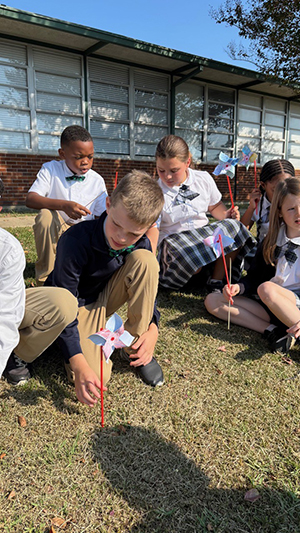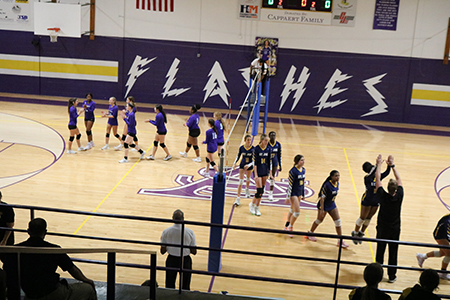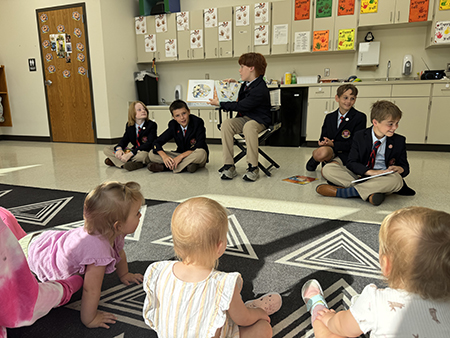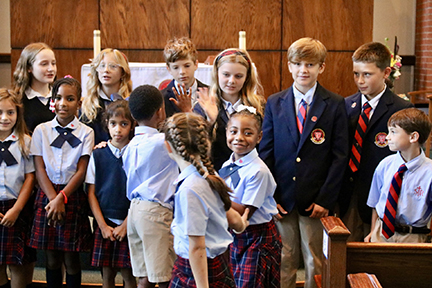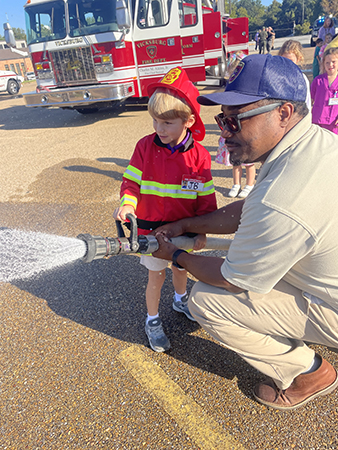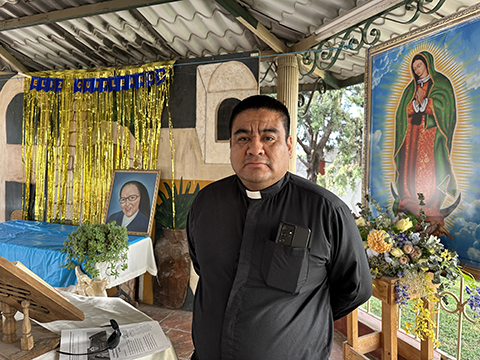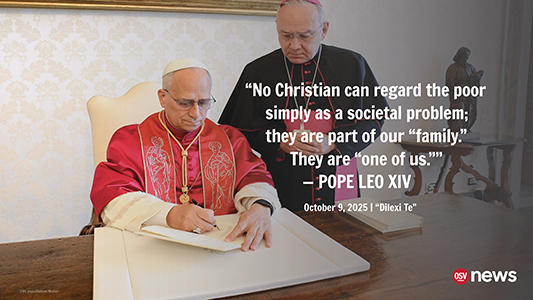Por Cindy Wooden
CIUDAD DEL VATICANO (CNS) — La educación católica, la cual ha cambiado a lo largo de los siglos, debe seguir evolucionando para ayudar a los jóvenes a afrontar los retos no solo de la tecnología, sino también de la confusión sobre el significado y el propósito de la vida, afirmó el Papa León XIV.
“Pido a todas las realidades educativas que inauguren una etapa que hable al corazón de las nuevas generaciones, recomponiendo el conocimiento y el sentido, la competencia y la responsabilidad, la fe y la vida”, escribió en una carta apostólica.
Titulada “Disegnare Nuove Mappe Di Speranza” (“Diseñar nuevos mapas de esperanza”), la carta se publicó solo en italiano el 28 de octubre y en días posteriores se publicó en otros idiomas. Conmemoraba el 60.º aniversario de la Declaración sobre la educación católica del Concilio Vaticano II.
En la carta, el Papa León declaró formalmente a San John Henry Newman “copatrocinador de la misión educativa de la Iglesia junto con santo Tomás de Aquino”.
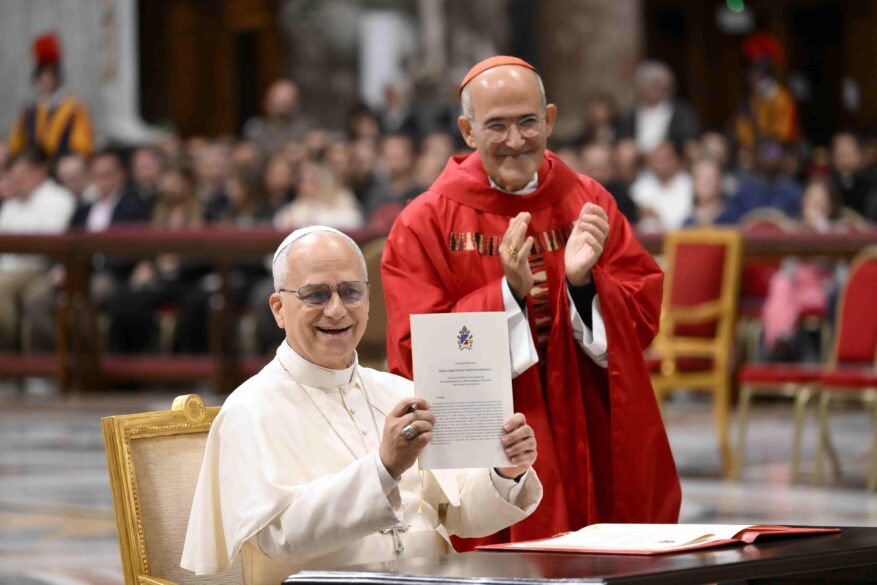
El Papa tenía previsto proclamar formalmente a San Newman “doctor de la Iglesia” el 1 de noviembre, en reconocimiento a su contribución a “la renovación de la teología y a la comprensión del desarrollo de la doctrina cristiana”. El santo nació en Londres el 21 de febrero de 1801, fue ordenado sacerdote anglicano, se convirtió al catolicismo en 1845, fue nombrado cardenal en 1879 por el Papa León XIII y falleció en 1890.
Incluso ante la revolución digital y la llegada de la inteligencia artificial, dijo el Papa León, las escuelas y universidades católicas muestran “una sorprendente solidez”.
“Allí donde las comunidades educativas se dejan guiar por la palabra de Cristo, no se retiran, sino que se relanzan; no levantan muros, sino que construyen puentes. Reaccionan con creatividad, abriendo nuevas posibilidades para la transmisión del conocimiento y del sentido”,escribió.
El Papa León pidió a los educadores católicos y a las instituciones educativas que se centraran en “tres prioridades”:
— “La primera se refiere a la vida interior: los jóvenes piden profundidad; necesitan espacios de silencio, discernimiento, diálogo con la conciencia y con Dios”.
— “La segunda se refiere a lo digital humano: formemos en el uso sabio de las tecnologías y la IA, colocando a la persona antes que el algoritmo y armonizando las inteligencias técnica, emocional, social, espiritual y ecológica”.
— “La tercera se refiere a la paz desarmada y desarmante: educamos en lenguajes no violentos, en la reconciliación, en puentes y no en muros; ‘Bienaventurados los pacificadores’ (Mt 5,9) se convierte en método y contenido del aprendizaje”.
Al mismo tiempo, dijo el Papa, es obvio que las escuelas católicas no pueden ignorar la tecnología ni evitarla, pero deben ser exigentes con las plataformas digitales, la protección de datos y el acceso equitativo para todos los estudiantes.
“En cualquier caso”, dijo, “ningún algoritmo podrá sustituir lo que hace humana a la educación: la poesía, la ironía, el amor, el arte, la imaginación, la alegría del descubrimiento” e incluso el aprendizaje a partir de los errores “como oportunidad de crecimiento”.
En la carta, el Papa trazó brevemente la historia de la educación católica, desde los “Padres del desierto” que enseñaban con parábolas, hasta el estudio monástico y la preservación de los textos clásicos y el plan de estudios altamente estructurado e interdisciplinario de la escolástica.
Pero también señaló la gran variedad de santos católicos a lo largo de los siglos que insistieron en que aprender a leer y escribir, y a sumar y restar, era una cuestión de dignidad humana, por lo que dedicaron sus vidas y sus órdenes religiosas a educar a mujeres y niñas, pobres, migrantes y refugiados, y otras personas marginadas de la sociedad.
“Allí donde el acceso a la educación sigue siendo un privilegio”, escribió el Papa León, “la Iglesia debe abrir puertas e inventar caminos, porque ‘perder a los pobres’ equivale a perder la escuela misma”.
“Educar es un acto de esperanza”, afirmó el Santo Padre.
Las escuelas y universidades católicas, escribió el Papa, deben ser “son lugares donde las preguntas no se silencian y la duda no se prohíbe, sino que se acompaña. Allí, el corazón dialoga con el corazó”, dijo, citando el lema de San Newman como cardenal.
Los padres, como afirmó el Concilio Vaticano II, son los primeros y principales educadores de sus hijos, dijo el Papa, pero “la educación cristiana es una obra coral: nadie educa solo”.
Quienes enseñan en una institución católica, dijo, “están llamados a una responsabilidad que va más allá del contrato de trabajo: su testimonio vale tanto como su lección”.
Y aunque la persona humana es el centro de todas las iniciativas educativas, el objetivo es ayudar a esa persona a aprender a ver más allá de sí misma y “descubrir el sentido de la vida, la dignidad inalienable, la responsabilidad hacia los demás”, escribió.
“La educación no es solo transmisión de contenidos, sino aprendizaje de virtudes”, dijo el Papa León. “Se forman ciudadanos capaces de servir y creyentes capaces de dar testimonio, hombres y mujeres más libres, que ya no están solos”.
“Recuerdo con agrado los años que pasé en la querida Diócesis de Chiclayo, visitando la Universidad Católica San Toribio de Mogrovejo, las oportunidades que tuve de dirigirme a la comunidad académica, diciendo: ‘No se nace profesionales; cada trayectoria universitaria se construye paso a paso, libro a libro, año tras año, sacrificio tras sacrificio’”, escribió.
El Papa también pidió a las escuelas y universidades católicas que sean modelos de justicia social y “ambiental”, promoviendo la simplicidad y los estilos de vida sostenibles y ayudando a los estudiantes a reconocer su responsabilidad de cuidar la tierra.
“Cada pequeño gesto –evitar el desperdicio, elegir con responsabilidad, defender el bien común — es alfabetización cultural y moral”, escribió.


